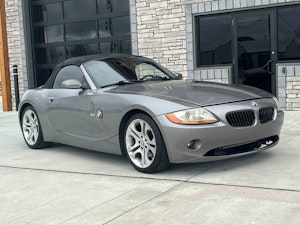Media | Articles
Will You Take $2,500 for Your Smashed MG?
“I own a 99,000-mile 1971MGB-GT that was in excellent condition and drove like new when it was hit by a negligent driver, who was clearly at fault and was cited by the police. I don’t want to get my insurance company involved, so I have been trying to settle my claim with the other driver’s insurance company, but seem to be getting nowhere. They made me a ridiculous offer of $2,500 to total the car, which I rejected outright.
Several months have passed, and I still get no contact from them. I wrote to the Ohio Insurance Board about a month ago. All I got back was a form letter, and still no contact from the insurance company. I hesitate to hire an attorney and start spending my own money when I am the victim entitled to due compensation. Can you suggest what I might be able to do?”—J.B., Canton, Ohio.
Insurance claims seem to be the continuing bane of collector car owners. Part of the problem is that insurance claims adjusters are accustomed to dealing with damaged Dodge minivans, and often can’t tell the difference between a collector car and just a very old used car. Their tendency is to assume that it’s just an old used car, declare it totaled, write a small check, and move on to the next file.
Another part of the problem is that car owners make the mistake of believing that insurance adjusters are supposed to be fair when settling the claim. None of us expects a car dealer to be fair when selling us a car; why should we expect an adjuster to be fair when buying our wrecked car? The laws do require insurance companies to act in good faith, but “good faith” is quite a bit different from “fair.” It leaves plenty of room for negotiation and difference of opinion about value, and also just plain ignorance.
It’s not surprising that the state agency wasn’t any help. They aren’t consumer protection advocates who make sure you get full compensation. If they check into the situation and the insurance adjuster tells them that they are trying to settle the claim, but that you keep insisting on more money than your car is worth, it’s usually enough for the agency to label it as a legitimate dispute and close their file.
Marketplace
Buy and sell classics with confidence
Sorry, You Need a Lawyer
J.B.’s best course is to make an admittedly undeserved investment in an attorney. That will tilt the scale in several ways. It makes it clear that you are serious. It makes it clear that unwanted legal expense for the insurance company will likely follow if suit is filed. And, perhaps most important, it often brings the negotiations higher up the insurance company’s ladder to a person who has broader authority to settle claims. But sometimes none of that happens until suit is filed. You have to be prepared for that, if it turns out to be the only way to get full compensation for your loss.
The SCM Price Guide indicates that J.B.’s MG is worth about $7,000. The difference between that and what the insurance company has already offered is $4,500. I hate to rub salt into the wound, but the attorney fees will easily become a significant erosion of the recovery, because one is legally unable to get reimbursement from the insurance company unless a specific state statute provides otherwise – which would be unusual.
But your attorney will know if there is any hope in this regard. For example, Oregon law allows the recovery of attorney fees for damage to personal property (cars fit that category) where the amount claimed is not more than $5,500. And you can be clever with that. Say your claim is $7,000. You might be better off suing for $5,500 and recover your legal fees than to sue for $7,000 and pay your own legal fees.
Call Your Insurer
J.B. may have made another mistake by not involving his own insurance company. He may be worried that his insurance premium might rise or his policy might get canceled if he made a claim against it, or perhaps he just feels that fairness dictates that the other driver’s insurance pay the claim and he wants to assure that. But trying to do too much here might be working to his disadvantage.
Where the other driver is clearly at fault, there is no way that your insurance company is going to pay for the damage to your car. All they will do is negotiate the claim with you and the other company. Since they know that they are spending the other company’s money, they will likely be more liberal about the value of the car. And they generally won’t be able to penalize you for the claim when they didn’t incur any loss.
Prevention Is the Best Cure
Finally, J.B. is not dealing with a company that specializes in collectible cars, and would be better off if he were. The specialty companies offer two advantages. One is that they know collector cars and are more willing to recognize their true value. The other is that they offer the opportunity to establish an agreed value for your car. If it is totaled, the agreed value is paid without further debate. And if, as here, the damage was the other driver’s fault, your insurance company will pay your claim at the agreed value and then take on the other driver’s insurance company to get reimbursement. At that point, what can the other company possibly say about the value of the car? We say $7,000, they say $2,500.
John Draneas is an attorney and car collector in Oregon. His comments here are general in nature and are not a substitute for consultation with an attorney. He can be reached at legalfiles@sportscarmarket.com.
Sports Car Market magazine
www.sportscarmarket.com










